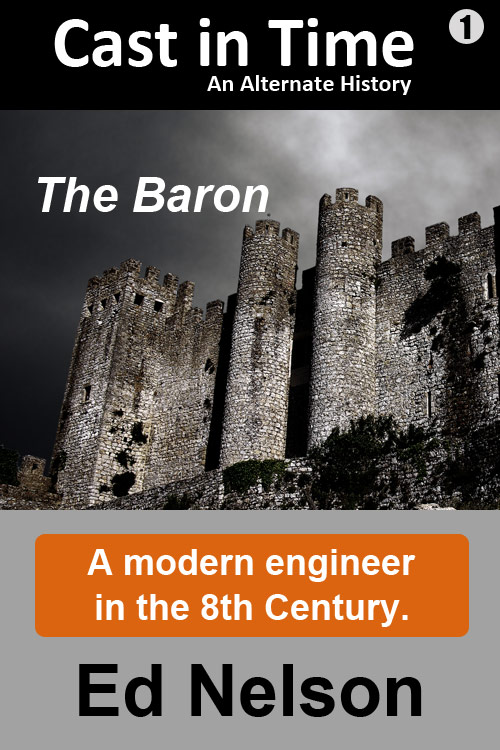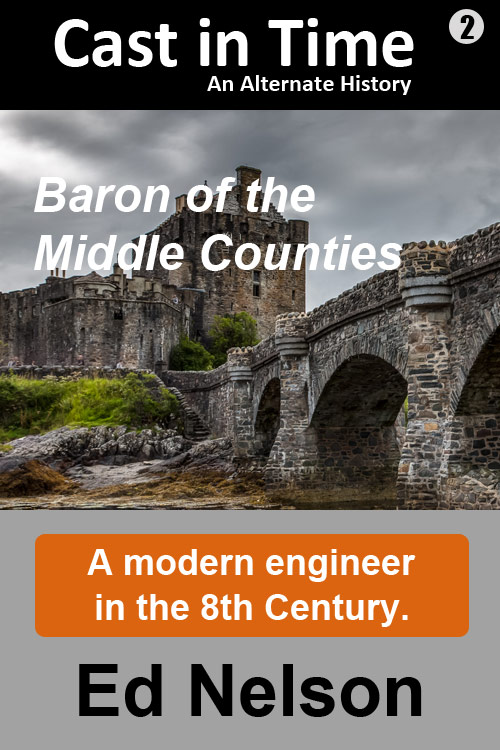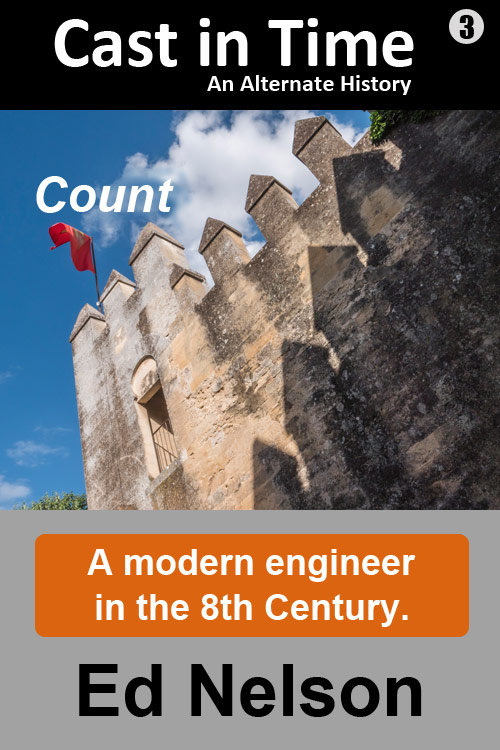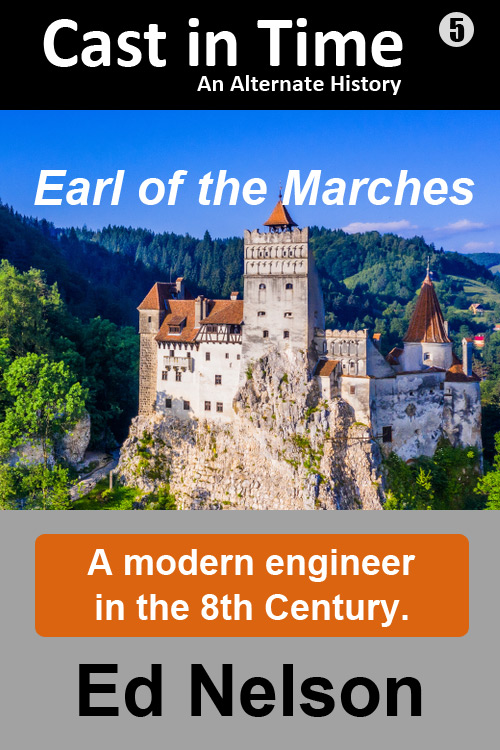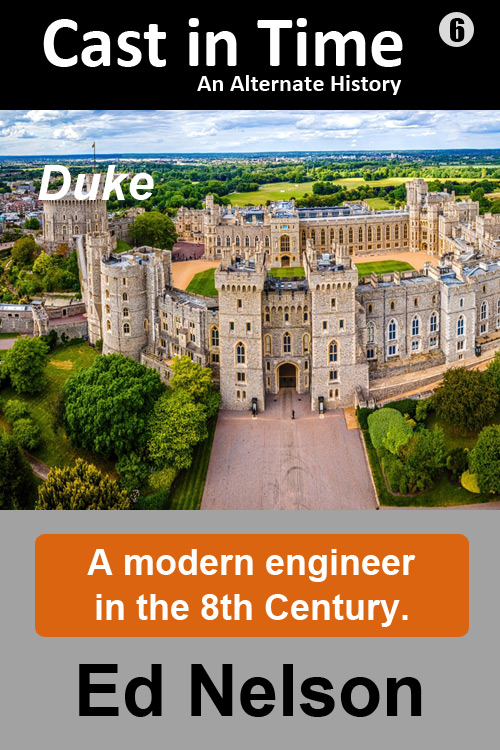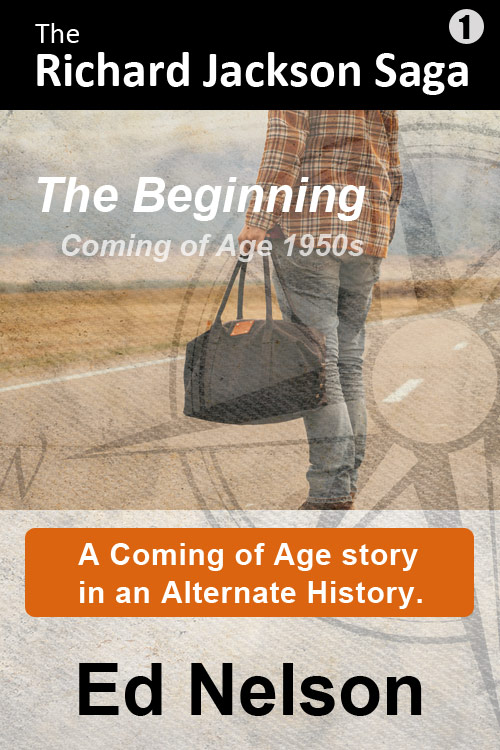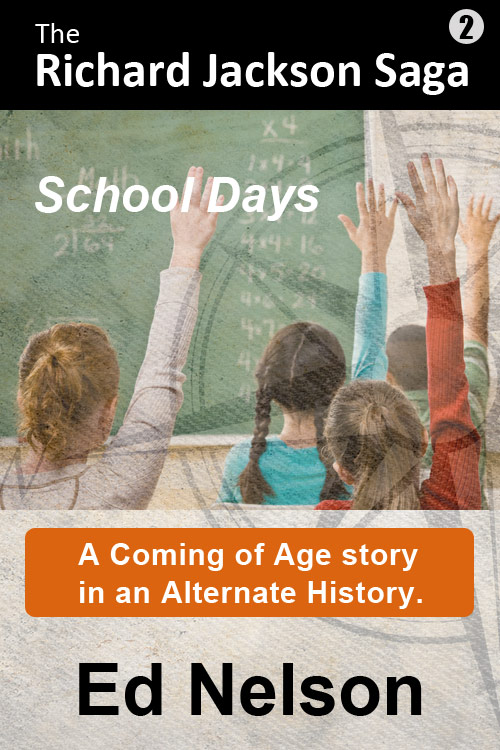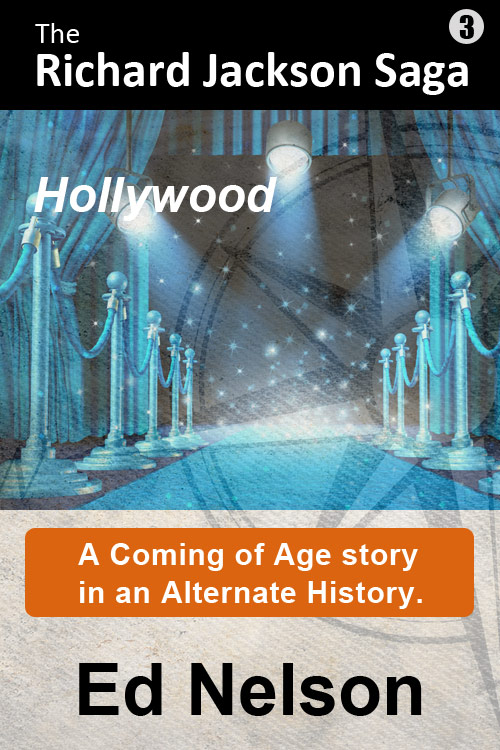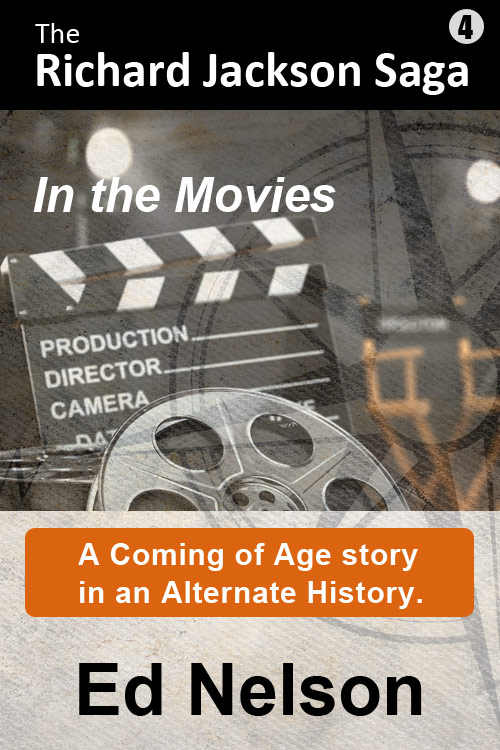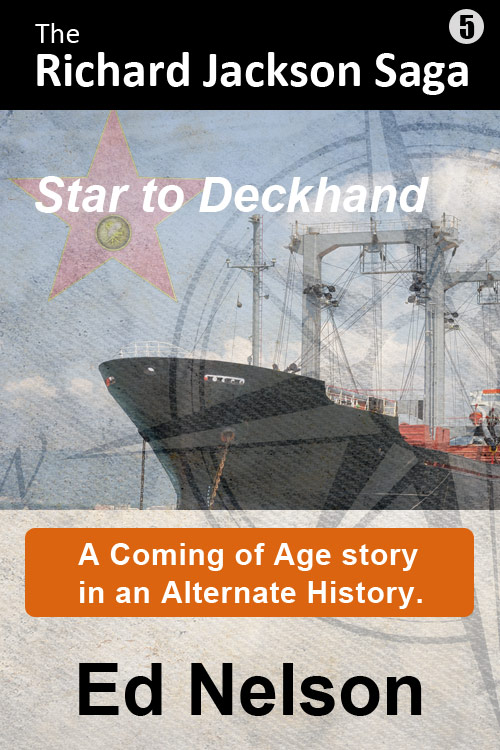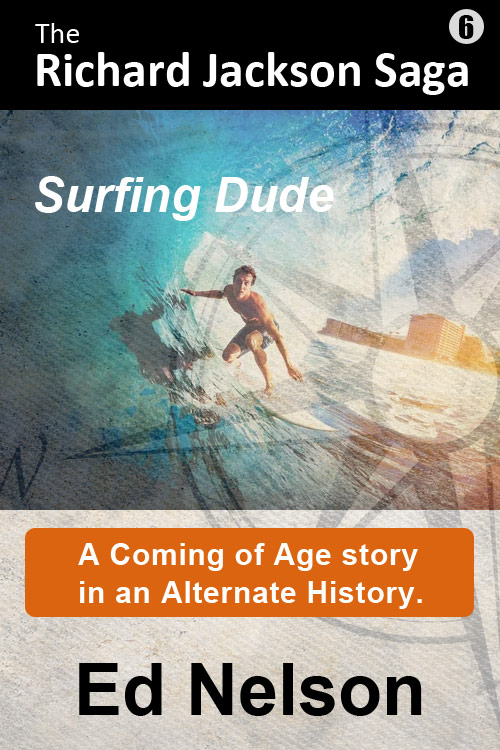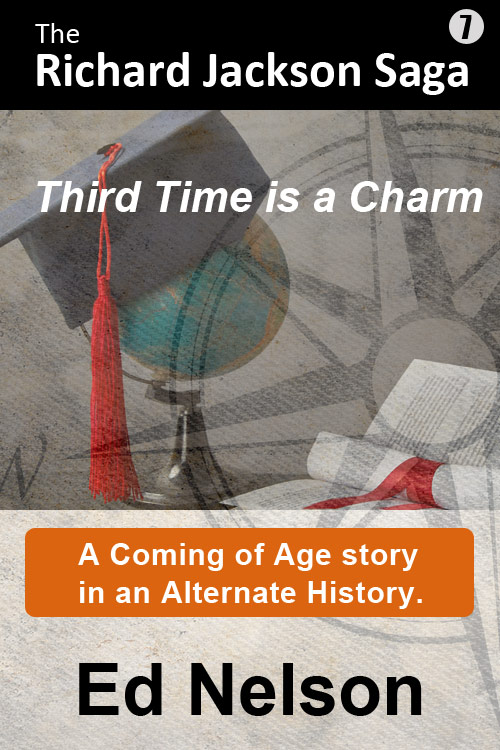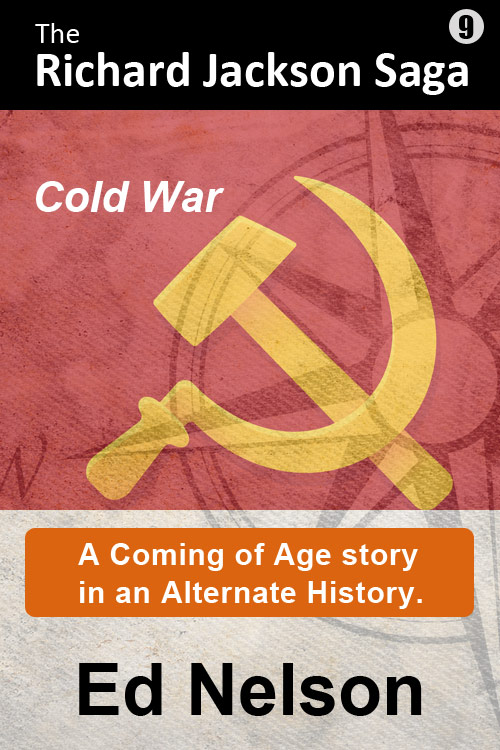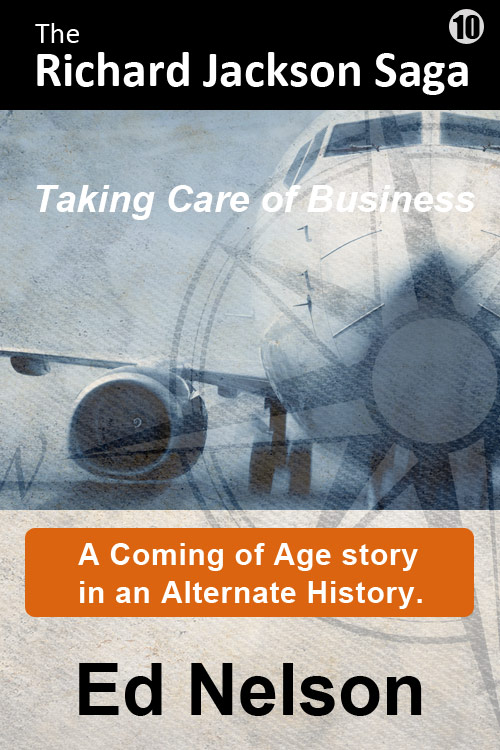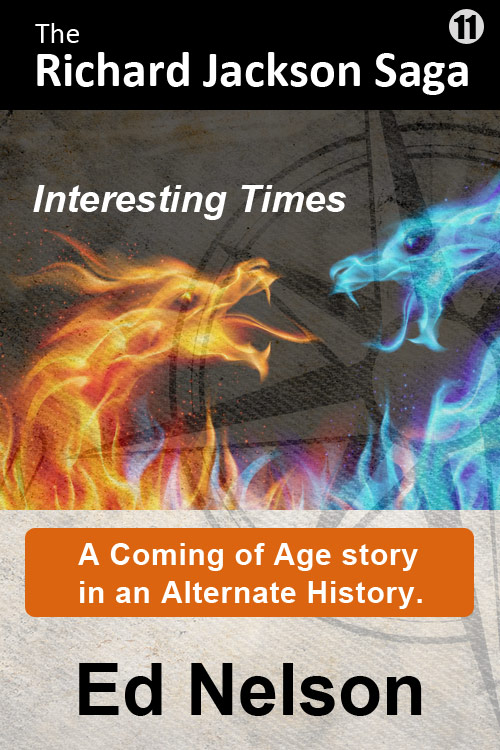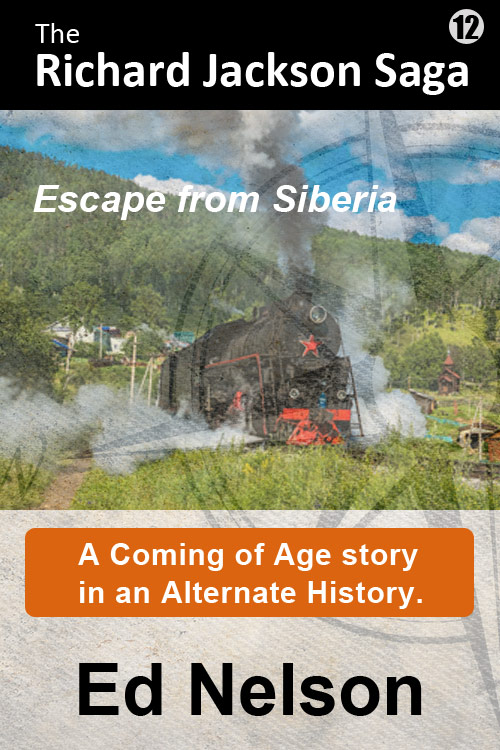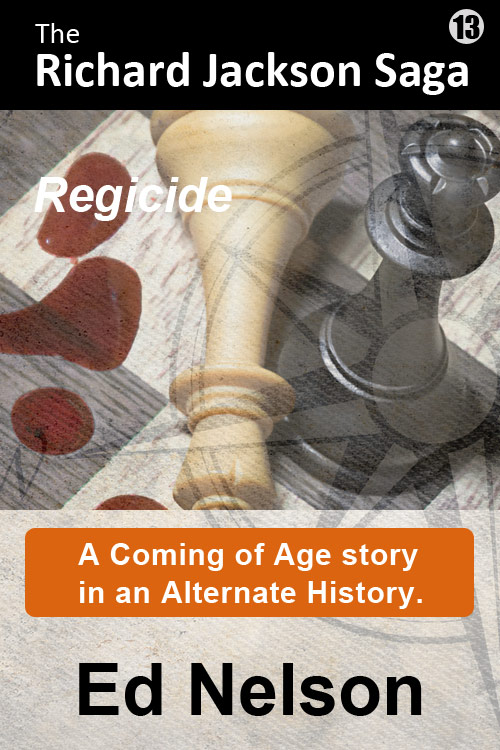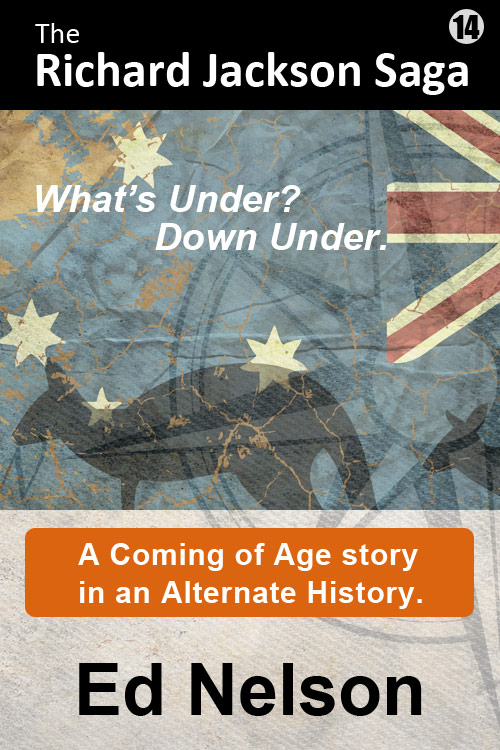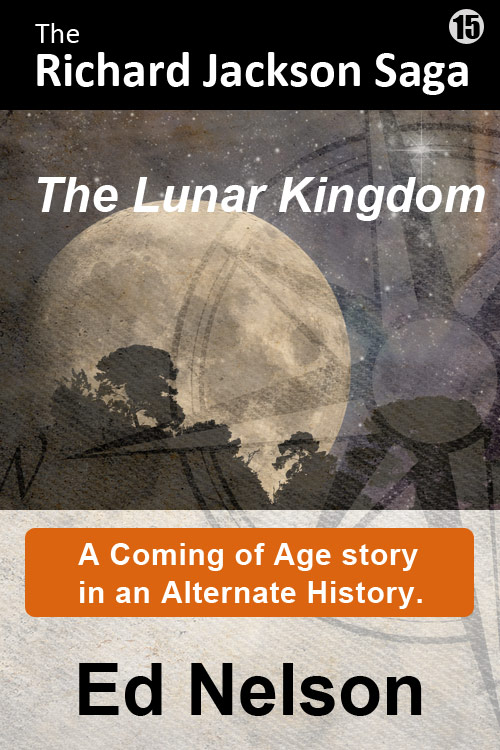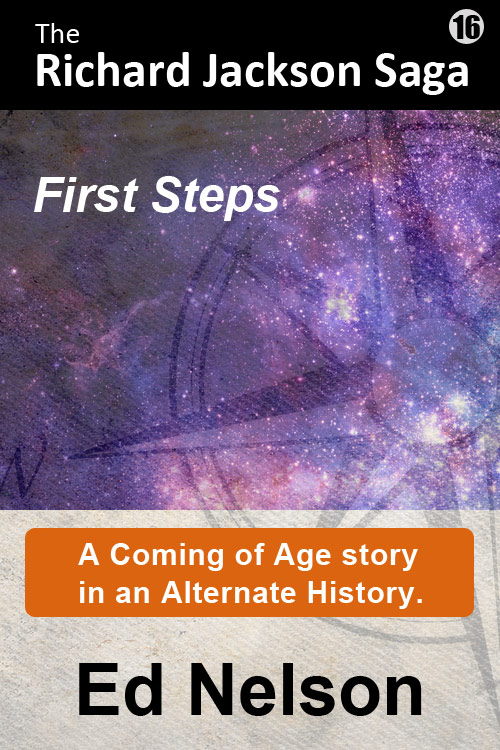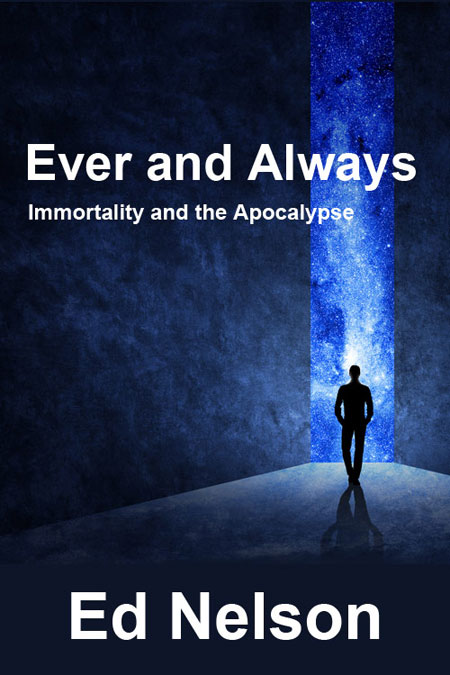An Engineer finds himself in an Alternate reality, Cornwall, in the year 715 A.D.
He awakens in the body of a young Baron. James Fletcher, now the Count of Cornwall, is facing new adversaries in the Franks. They try to assassinate him and his family, precipitating a full-out war. In the meantime, advancements were made in steam engines, cannons, ships, and electricity. Continue you on with this wild ride through the eighth century.
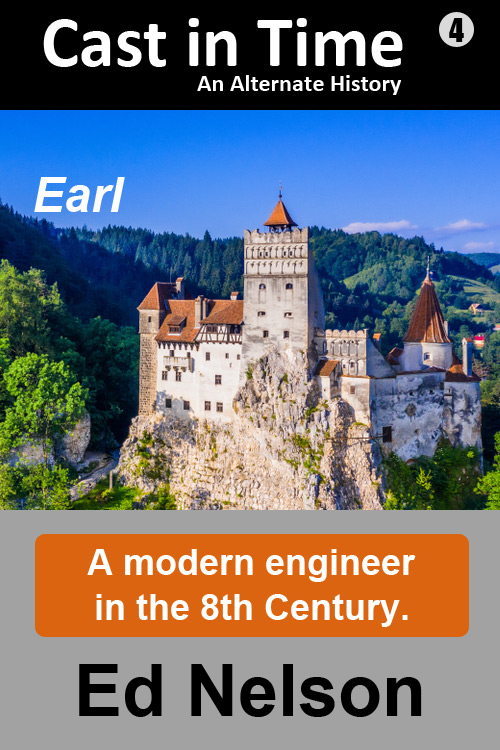
Chapter 1 (partial)
As I took stock of my first six years in this time, I decided I had to consolidate my gains. That still made sense. What didn't make sense, after mature thought, was the start of the Industrial Revolution. The Industrial Revolution was the introduction of mass production. But we were lacking the workers to support mass production. More importantly, mass production meant exactly that. A lot of products would be produced. Our population wouldn't be able to absorb all the production.
Scratch that idea.
Filling in the technical gaps still made sense. We were using technology from the eighth century alongside the twentieth century.Preserved foods were high on my list.
We had ice from the ice caves, but canning would strengthen our food chain. So far, we have been lucky not to have a bad growing season, but one could happen without warning. Canning was a must, both in mason jars and metal cans. That reminded me we had to invent the can opener.
Incubators were next on my list for small animals, such as baby chicks and sickly newborn infants. I called the babies sickly because I knew some babies needed incubators, but not why. I'm sure Baroness Agnes could tell me.
We had small stills in the lab and even larger ones in our pharmaceutical production buildings. What we didn't have were large alcohol production stills. We could make whiskey using wheat, rye, or barley and scotch using rye.
Corn, as I knew it, came from the Americas and wasn't available to us yet. It was the same reason we couldn't make vodka. Potatoes came from Chile. Even so, whiskey could be a huge export for us. I thought it would be funny to teach the Scots how to make scotch. And I would insist on the correct spelling as whiskey, not whisky.
Not caring for gin, I didn't think about making any. I'm certain that someone would come up with it. They would also start distilling wine to make brandy. That I could take or leave.
Another important product to improve was paper. All we have is crude pulp. We needed smooth white paper for writing. And soft, smooth toilet paper. The stuff we had wasn't much better than the corncobs we used on the farm once all the pages from the Sears catalog were used up.
Then, we needed large transformers to introduce electricity on a useful scale. So we had to come up with a light bulb. Shades of Edison. At least we didn't have to go through the thousands of trials. Hundreds, probably, but still a lot less than his technicians. You didn't think old Tommy did all that work himself.
Improved batteries would be useful in many ways once the electrical age was started. We had large arrays of glass jars filled with acid chemicals. Wires linked them to act as batteries or chemical generators for telegraphic and radio transmissions. But we needed dry cell batteries in more portable form factors.
Flywheels. We had a start on them on our steam engines, but they could stand a lot of improvement.
Next up was the Pelton wheel. It would extract energy from the impulse of moving water, unlike water's dead weight as the traditional overshot water wheel.
The Pelton wheel would be the easiest of the changes to introduce. It was simply a different shape from the waterwheel now in use.
I didn't plan to be anything but an advisor on these projects. Some of our budding engineers were showing promise, so they were going to get a chance to show their stuff. There was one project I was interested in. Making plastics from oil.
We were still using cow's milk to produce casein. But we didn't have enough cows to meet the potential need. Mirrors alone were taking all the casein production. And there weren't enough cows in the whole of England to meet the needs I foresaw.

Cast in Time Book 8 Coming in November 2025!
An Engineer finds himself in an Alternate reality, Cornwall, in the year 715 A.D. He awakens in the body of a young Baron. James Fletcher continues on his world conquest. He has realized that nothing short of world domination will allow him to live in peace.
No matter how he expands the new neighbors will covet his goods and lands. Now it is Italy that is being conquered while James is doing a grand tour of all his territories. With heavier than aircraft it is smooth sailing, well almost.
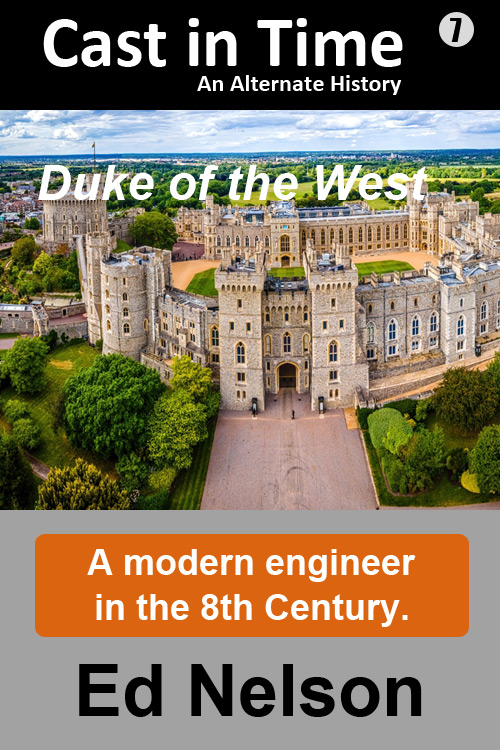
Earl E. (Ed) Nelson
I have always wanted to be an author. I had my first rejection slip in about 1965. Wish I had saved it. For many years the only writing I did was technical as pesky things like three children, nine grandchildren, and three great-grandchildren came along.
My technical writing was in the field of quality in several different journals. I worked in the field of quality for over fifty years, starting as a line inspector and ending up as a Vice-President of Quality and elected a Fellow of the American Society for Quality.
Then a wonderful thing happened. I lost my job and was out of work for almost eight months. To keep from going crazy I wrote. I posted my stories on an online site, and lo and behold people read them and said nice things. Fast forward about eight years and I am retired and writing for the fun of it.
A lot of what is in my stories is based on my life experiences, gasp! Give or take a lie or two that is. The one fortunate thing in my career is that I got to travel worldwide and have been to most of the locations I write about.
In my younger days, I tried hot air ballooning, sky diving, white water rafting, spelunking, and target shooting. I have collected stamps, drove in road rallies, lowly rated by the US Chess federation. I built a Kentucky long rifle and a dueling pistol. I am a licensed HAM radio operator. My hobby is having hobbies.
My true passion is reading. Trapped in a hotel room I would read the telephone book. The TV would not be turned on. I have averaged 200 books a year for the last sixty years. I knew those long flights were good for something.
BTW I was born in the middle of an air raid in England during World War II, the house next door was destroyed and our windows were blown out. That is probably the most interesting thing I have been involved with. Mum never forgave me. Happily married for 56 years I hope my wife doesn’t catch on to what a goof I am.

Amazon Reviews
What readers are saying about this book
Available on Amazon
You can purchase this book and all of Ed Nelsons book series on Amazon.
Books
Other Books by Ed Nelson
- All
- Richard Jackson Saga
- Cast in Time
- Other
F.A.Q
Frequently Asked Questions for Ed Nelson
-
What inspired you to become a writer, and what drives you to continue writing today?
I had a contracted project finished and had time before the next one started. I had been thinking about a story for several years so decided to give it a try. It worked. I'm retired now so it is a nice hobby and the extra income is nice.
-
Can you tell us about your writing process? Do you have any specific rituals or habits that help you get into the writing zone?
I started out as a pantser, writing by the seat of my pants, no plot, no ending just writing. That works on a single novel but not a series. So now I try to plot, only gross outlines. When I get hung up on where to go next the pantser takes over.
-
Your latest book, Cast in Time, has been receiving excellent reviews. What was the most challenging part of writing it, and what do you hope readers will take away from it?
Plotting! Don't have telephones before you have electricity under control. Well maybe two tin cans and a string.
-
How do you approach character development? Are your characters based on real people, fictional archetypes, or entirely original creations?
I'm the hero of course. Eveyone else is an archetype. As a hero I'm also a archetype. That makes me a pretty shallow person! Maybe I'm not a hero after all.
-
What do you believe is the most critical element of a compelling story, and how do you ensure you deliver it in your writing?
Involving the reader deeper and deeper into the story until the most outrageous acts are believable.
-
Writing can be a solitary endeavor. How do you handle writer's block or self-doubt, and what advice would you give to aspiring writers facing similar challenges?
Walk away until the guilt piles up and start writing again.
-
Many of your readers admire your distinct writing style. How did you develop your voice, and how important do you think it is for writers to find their unique voice?
My voice is exactly that. When I type out the words I'm speaking them in my head as though I was telling the story our loud around a campfire. It is how I speak.
-
Beyond the pages of your books, what other forms of storytelling inspire you? Are there any particular authors, films, or artistic mediums that have influenced your writing?
I'm a voracious reader so many books have influenced me. I can't point to any specific one, but I know that I have picked up elements of storytelling.

